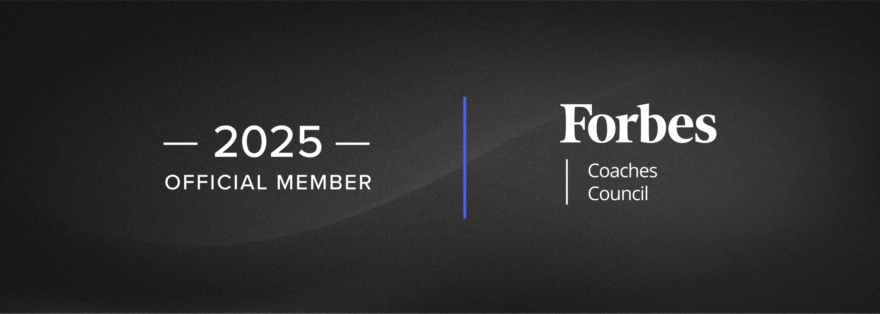In today’s fast-paced business environment, the quest for productivity is relentless, but the path to unlocking it isn’t always obvious. Leaders and managers often juggle conflicting priorities and are distracted by new technologies, shifting market conditions, and the pressure to deliver results. However, true productivity doesn’t come from doing more; it comes from doing what matters and doing it well!
This article reveals the secret to highly productive teams and individuals by exploring three crucial components: Brilliant Basics, Distractors, and Accelerators. How you navigate these “three swim lanes” will determine whether you and your team make meaningful progress or simply spin your wheels.
“Sometimes you need to slow down, to speed up!”
You’ll discover how to sharpen your team’s focus on the fundamentals that drive success, eliminate the distractions that slow them down, and strategically leverage tools and innovations to accelerate performance. Drawing on real-world examples and actionable insights, this article will equip you with the mindset and tactics to lead your team to extraordinary results—without getting caught in the productivity traps that derail even the best intentions.
If you’re ready to unlock your team’s potential and achieve breakthrough performance, this is a must-read for you.

In the quest for highly productive teams, it’s essential to understand the interplay between three critical components: Brilliant Basics, Accelerators and Distractors. How you choose between them will make or break your, and your team’s, performance and productivity.
The Three Swim Lanes Of Productivity
Brilliant Basics are the fundamental practices that lead you to success. They are the steps in a marketing funnel, an operational process, a project delivery or a sales process.
Following consistent steps leads to a desired outcome: an implemented project or a financial transaction.
Brilliant Basics are the repeatable steps that will, more often than not, achieve the desired outcome.
Distractors hinder your progress. They might be a lack of discipline in following your Brilliant Basics, a lack of attention to detail or a missed step in the process.
Or they could be a mindset. You convince yourself it can’t be done or there’s a better way, or you become bored and switch off.
There may also be someone or something redirecting your focus. Your boss might ask you to look into something, a competitor might unexpectedly make a move in the market or trading conditions might change. Distractors feel like swimming against the tide—expending effort without making headway.
Accelerators are enhancements we hope will boost performance. They could be new technologies, innovative methods or strategic initiatives that accelerate teams’ progress toward their goals.
The challenge is assessing whether they could become a distractor, taking you off task and away from your brilliant basics.
Productivity Traps
Several traps derail even the best-laid plans:
- Self-Inflicted: Teams can be their own worst enemies. Unhelpful mindsets and the “magpie effect”—constantly chasing shiny new objects—prevent progress.
- External Influences: Market changes, disruptive technologies and competitive pressures serve as distractors if not navigated properly.
- Authority Bias: When a senior leader champions an accelerator, the success criteria may soften over time or even get overlooked.
- Festering Distractors: When things are allowed to worsen, the flow against you increases.
- Accelerators That Don’t Pay Off: I remember implementing new software in a sizeable financial institution, but leadership became impatient. This led to the withdrawal of promised functionality, and the intended benefits went unrealised.
Real World Examples
I coached a leader in the U.K. healthcare sector whose many priorities were limiting their productivity. So, we used the swim lane analogy to simplify things. We clarified their goals, understood each one’s importance, and categorised tasks and activities into three lanes:
- What should they be doing that will lead to the desired outcome?
- What tasks added no value to the end goal or limited their time and attention?
- What shiny new things were they being drawn into?
In this leader’s case, there were plenty of distractions, and their boss was a magpie, constantly asking them to look into something shiny and new.
First, we focused on their boss. The need to please or fear of saying no to authority can be a real problem. How could the leader build a story of impact and consequences to make saying no easier?
Coaching upwards helps leaders understand internal conflicts and compromises and their impact on their team and organisational goals. Through this process, my coachee gained a clear perspective on what matters and what is impactful. They defined a plan to eliminate, mitigate or delegate distractors so they could focus on their key deliverables—their brilliant basics.
My key learnings over the years are:
- Explore who could help and who could get in your way.
- Engage stakeholders early, be proactive and build relationships.
- As Stephen Covey says, start every interaction from their perspective – ‘seek first to understand’.
- Have a plan to influence others and mitigate potential blockers.
- Focus on the ‘why’ when presenting your ideas and goals/ Don’t get hung up on the how; be flexible and bring any conflict back to the ‘why’.
- Don’t do all the work; involve stakeholders in solving problems; they could have a better view.
- Test, test and test assumptions, beliefs and biases.
- Be aware of your self-talk; your mindset, if not managed, could trip you up.
In another example, our business built and delivered a sales leadership program for a global med-tech company. They had installed the latest CRM system; however, resistance was causing low adoption, so leadership requested a training program.
It became evident that the “why” was missing—the sales teams believed the new program was meant to monitor them, while the business wanted the sales team to see how the CRM could be an accelerator for all.
But right then, the CRM wasn’t an accelerator but a huge distraction. We helped the sales leaders understand the relationship between basics, distractors and accelerators. We focused on the basics and how they could use them to help their teams be brilliant.
“Excellence is doing ordinary things extraordinarily well.” —John W. Gardner

Refining Your Brilliant Basics
In the second example above, we asked the med-tech sales team to define their sales process’s key activities and tasks. They quickly identified things that added no value, like spending time on customers with no intention of buying and not spending enough time with customers who could or might buy.
The penny dropped for them as they realized the importance and significance of CRM—to them! It could help them determine which opportunities were worth pursuing, track all their activity and ultimately determine how best to spend their time.
The Secret To Productivity
The secret lies in knowing what creates value—your outcomes. Focus on what inputs create the outputs that lead you to your desired outcomes.
- Brilliant Basics: Find that sweet spot between quantity and quality; how do you do more of what you need at the highest quality?
- Eliminate, mitigate or delegate anything limiting your time on Brilliant Basics.
- Avoid chasing the silver bullet. Focus on what consistently works rather than seeking quick fixes.
Jim Collins, author of Good to Great, suggests working out what you’re good at and focusing all your energy on that. He calls it the ‘hedgehog principle’. Brilliant Basics are your hedgehog; focus on perfecting them first and foremost.
Senior professionals can drive their teams toward exceptional performance and success by refining the basics, mitigating distractors and strategically leveraging accelerators.
This article first appeared on Forbes.com on 26th June 2024
Ricky has been a regular contributor to the Forbes Councils since 2023, where he shares his perspectives on all things leadership, change, culture and productivity, all with Thinking Focus’ unique perspective on metacognition, or as we prefer to say, thinking about thinking.




